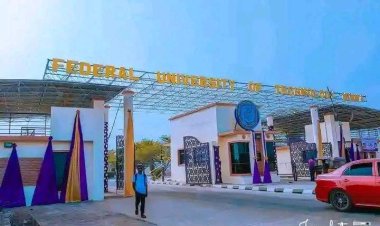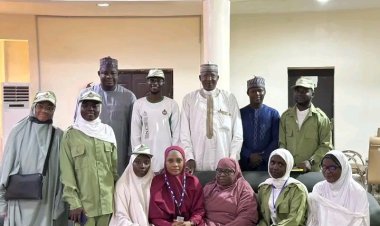Veritas University Abuja Hosts NAMS Conference 2024
Prof. Abimbol A. Orukotan's presentation at the NAMS National Conference 2024 highlighted how biotechnology can enhance global economic stability through advancements in agriculture, environmental sustainability, healthcare, and waste management.

The third day of the NAMS National Conference 2024 at Veritas University Abuja highlighted the transformative potential of biotechnology in achieving global economic stability. Prof. Abimbol A. Orukotan delivered a compelling presentation on how biotechnology can address key global challenges through various applications.
Topic: Potential Sustainable Impact of Biotechnology in Global Economic Stability
Presenter: Prof. Abimbol A. Orukotan
Agriculture and Food Security: Biotechnology is poised to revolutionize agriculture by enhancing crop yields with genetically modified organisms that are resilient to pests, diseases, and environmental stressors such as drought. This innovation not only promises increased food production but also contributes to sustainable farming practices. Biotech can develop crops that thrive in poor soils and require less water, addressing the impacts of climate change. Additionally, advancements in biotechnology are leading to improved food preservation and packaging, which can significantly reduce food waste.
Environmental Sustainability and Climate Change Mitigation: The potential of biotechnology in environmental sustainability is vast. Bio-based alternatives such as biofuels and bioplastics can reduce dependence on fossil fuels. Furthermore, biotechnology enables the creation of plants and microorganisms capable of capturing higher levels of carbon dioxide, contributing to climate change mitigation.
Healthcare and Public Health: In the realm of healthcare, biotechnology is driving innovations in affordable medicines through biopharmaceuticals and personalized medicine. The role of biotechnology in vaccine development is crucial for disease prevention and managing public health crises, including pandemics.
Waste Management and Pollution Control: Biotechnological processes offer solutions for waste management and pollution control. Bioremediation techniques can effectively address pollution from oil spills and toxic waste. Additionally, biotech can convert waste into valuable products such as bioenergy or bioplastics, promoting a circular economy.
Industrial and Manufacturing Innovations: Biotechnology also influences industrial and manufacturing sectors by introducing sustainable production processes, green chemistry, and enhancing resilience to global economic shocks. These innovations support global trade and economic stability while improving water and resource management.
Conclusion: Prof. Orukotan's presentation underscored biotechnology's immense potential to foster global economic stability through sustainability, enhanced food security, and innovative solutions across multiple sectors.

 Mary Nwaeze
Mary Nwaeze 



